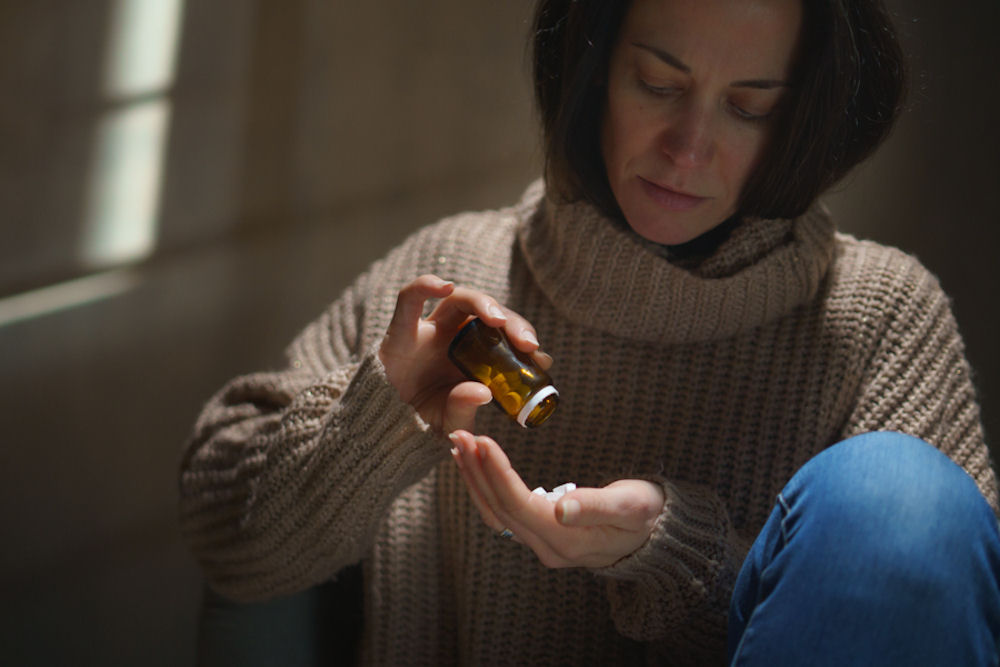According to the National Center for Drug Abuse Statistics, more and more Americans are abusing and are becoming addicted to heroin. And the organization provided quite a bit of data to back up that very grim assertion. Between 2019 and 2020, some 6.25 million people in the U.S. admitted to using heroin at least once. The organization also noted that roughly 80% of people abusing heroin previously had a problem with prescription-based opioids, such as Oxycontin.
Heroin is involved in an estimated 14,000 overdose deaths each year, notes the same study data from the National Center for Drug Abuse Statistics. It’s easy to look over these statistics and only see numbers, but there is something more.
These numbers represent the many people who have lost everything due to heroin addiction. Fortunately, there is a silver lining; more and more people are deciding that they no longer want to live a life ruled by heroin addiction. They are turning to the more than 14,500 licensed rehab facilities across the U.S. for help.
Table of Contents
ToggleMore Americans Are Ready to Put Heroin Addiction Behind Them
While many people are content with living a life delineated by heroin addiction, such is not the case for everyone, notes a study from the Centers for Disease Control and Prevention (CDC). In the 2019 study, researchers found that heroin-involved overdose death rates declined by more than 6% between 2018 and 2019. Coincidentally, it was around this same time that rehab facilities nationwide began seeing an uptick in new admissions.
So it couldn’t be more clear that many Americans who have a substance abuse problem involving heroin have grown tired of their addiction-dependent lifestyle and want help getting their lives back on track. But anyone who has been there themselves knows the road to addiction recovery is not easy when opioids are involved. According to some studies, there is a link between abusing prescription opioids and heroin abuse. Almost 80% of those who begin using heroin have struggled with taking prescription opioids.
What Are The Signs of Heroin Addiction?
Signs of use include fatigue, slowing breathing, fading in and/or out of consciousness, flushed face, nausea, vomiting and track marks from injections. If you’re concerned about your child being addicted to drugs, these signs can help you address the problem and get him or her the help he or she needs.
Can Detoxing From Heroin Be Done At Home?
Because heroin is an opioid, the detox and withdrawal symptoms associated with abrupt cessation are not unlike those associated with immediately quitting OxyContin, Fentanyl, or any other prescription-based opioid. It is certainly NOT safe to attempt a detox from home from heroin or any opiates. To better put this into perspective, it helps to know a little more about what it means to go through an opioid detox and more about the withdrawal symptoms that follow below.
What Are The Symptoms Of Heroin Withdrawal?
For those unaware, detox occurs naturally, and the process begins shortly after an individual stops supplying their body with the drugs or alcohol it has grown accustomed to receiving. While this is a critical step in addiction recovery, it is also a difficult one as it can trigger a wave of unpleasant withdrawal symptoms. Some of the more notable ones, as it relates to heroin, include the following:
- Nausea
- Arrhythmia
- Abdominal pain
- Profuse sweating
- Tremors
- Nervousness and agitation
- Anxiety and depression
- Muscle pain
- Muscle spasms
- Intense drug cravings
- Impaired respiration
How Long Does Heroin Withdrawal Last?
How long the heroin withdrawal period will last can vary from one individual to another. The one consistency is how quickly heroin withdrawal starts for everyone. Available data shows that most people experience heroin withdrawal symptoms 6 to 12 hours after taking their final hit of the powerful street-level opioid.
During the heroin withdrawal timeline, within 1 to 3 days, most withdrawal symptoms will peak. Within a week or so, they start to subside. But some people do suffer from what is known as post-acute withdrawal syndrome when they try to end their relationship with heroin. This means that some of the symptoms can linger for weeks or even months.
What Is The Safest Way To Detox From Heroin?
One of the benefits of getting help from a licensed heroin detox facility is having a team of medical professionals at your beck and call should anything go wrong. Most rehab facilities in the U.S. will provide individuals with round-the-clock monitoring by licensed physicians and nurses as they go through detox.
Those same physicians and nurses will also prescribe FDA-approved medications to combat severe withdrawal symptoms resulting from detox if they believe an individual needs them. But it doesn’t end there; to help individuals with the psychological aspects of overcoming addiction, many facilities also offer addiction counseling with a licensed therapist.
That all said, everyone experiences detox and withdrawal symptoms differently. So while the destination to the land of sobriety might be the same for two people, the journey getting there can sometimes be vastly different. Some of the factors that can dictate how easy or difficult overcoming heroin addiction can be, for example, include the following:
- How long they have been using
- The amount of heroin they consume each time they get high
- The degree to which their brain and body are dependent on heroin
- Whether or not they have a mental illness
What Are The First Steps To Take To Safely Detox From Heroin?
Overcoming heroin addiction is no easy task. It is, in many ways, as difficult as trying to overcome an addiction to prescription-based opioids. It will take time and the help of a trusted heroin detox facility. To learn more about overcoming heroin addiction speak with one of our friendly admissions team associates today at Agape Detox Center.

Stephanie Robilio is an accomplished Clinical Director at Agape Behavioral Healthcare. With a Master of Social Work degree, LCSW license, and extensive training in Rapid Resolution Therapy under her belt, she brings a wealth of expertise to her role. Her unique combination of education and experience allows her to provide exceptional care to clients and lead her team with confidence. Stephanie’s joy comes from witnessing the moments when her patients creatively connect the dots and bravely move toward reclaiming their power. Her purpose is to help individuals understand their past so they can create a future full of hope, growth, and success. Stephanie attributes a large portion of her success to the supportive culture and strong sense of community fostered by the Agape team.




